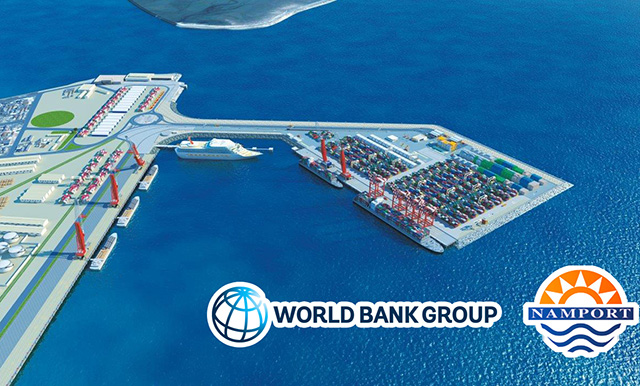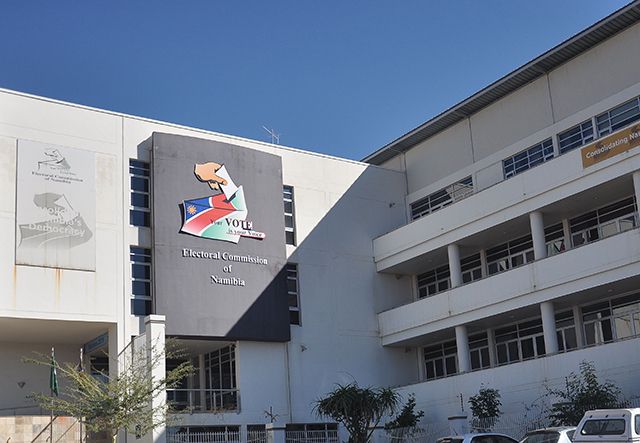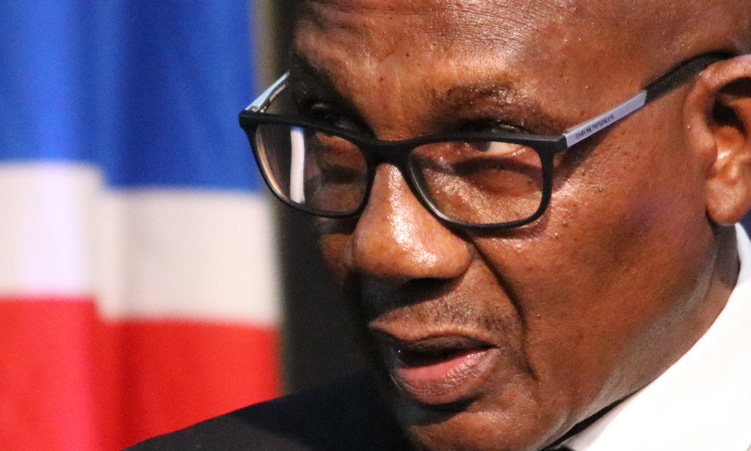THE Namibian Ports Authority (Namport) has agreed to let a private company manage the new container terminal at Walvis Bay to maximise income.
understands that the decision was made last year, and finalised two months ago by the Namport board.
Namport chief executive Bisey Uirab promised to answer questions by today.
However, two people with direct knowledge of this matter said the Namport management recommended to the board between June and July this year to allow a private company to run the container terminal at Walvis Bay via a public-private partnership (PPP) arrangement.
The people declined to be named to discuss confidential talks at the parastatal. The terminal, which is an extension of the current port, is being constructed for N$4,2 billion, and is expected to be completed next year.
Even though the proposal by the management was accepted, the Namport board told the managers to do more work, including rephrasing the terms of reference to be specific in aspects such as job security, and making room for the repayment of the N$4,2 billion investment.
There are, however, some board members who fear that giving the terminal to the private company immediately could result in job losses if the parastatal does not make its demands clear.
“Maybe the new company would only want to use 500 workers for work that was done by 1 000 people. The private company could retrench people to do that”.
The board is said to have asked the management to change the specifications of the tender to make it compatible with the new national procurement laws.
The board, sources said, specifically wants to make sure there is clear commitment to repay the N$4,2 billion loan obligation of the state-owned entity.
Namport obtained a large part of that loan from the African Development Bank in 2015.
While some senior Namport officials are still optimistic that the management will re-submit their revised proposal to the board by November this year, some are not convinced, saying the process could be completed next year.
A person familiar with some thoughts of board members said they want Namport to be in charge of the extended terminal, instead of letting in the private company that would start doing things differently.
It’s not yet clear whether the private company will also take over the entire harbour, but some Namport officials are open to the idea of the firm taking charge of the entire port.
Sources said the board was so worried about this information leaking out to the extent that the board instructed managers to tear up the submissions after that meeting. Namport chief executive Uirab told The Namibian in May this year that they had received a World Bank report which advised the government to form a public-private partnership for the new part of the port. A public-private partnership is an agreement between a government entity or department and a private investor who, in this case, would manage the port at their own cost for several years on behalf of the state, while recovering their investments through service charges.
“We received the report around January 2018, and commissioned a further study. We expect to receive that study report by the end of this month, after which we will engage the relevant authorities and parties for the way forward,” Uirab said.
He added that the construction of the terminal was at an advanced stage, and progressing well within its N$4,2 billion budget. The company plans to start using the facilities by early next year.
The World Bank report, seen by , said the Walvis Bay port, as the most significant commercial seaport in Namibia, receives around 3 000 vessels and handles about six million tonnes of cargo every year. It is also the gateway to 190 million southern Africans.
Supporters of public-private partnerships, such as finance minister Calle Schlettwein, believe the arrangement allows the government to spend scarce resources on basic needs, while the private operator would fund projects such as port expansion.
However, critics such as the National Union of Namibian Workers (NUNW) see the World Bank’s advice as a way to promote the interests of private companies to make as much money as possible, and could result in strategic entry points into the country falling into private hands.
“Our unwavering position, as the largest workers’ movement, is that we reject with the contempt it deserves the advice sought,” NUNW secretary general Job Muniaro said last year.
Stay informed with The Namibian – your source for credible journalism. Get in-depth reporting and opinions for
only N$85 a month. Invest in journalism, invest in democracy –
Subscribe Now!






